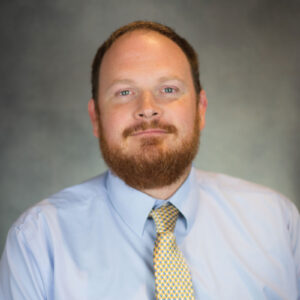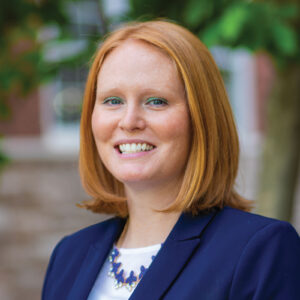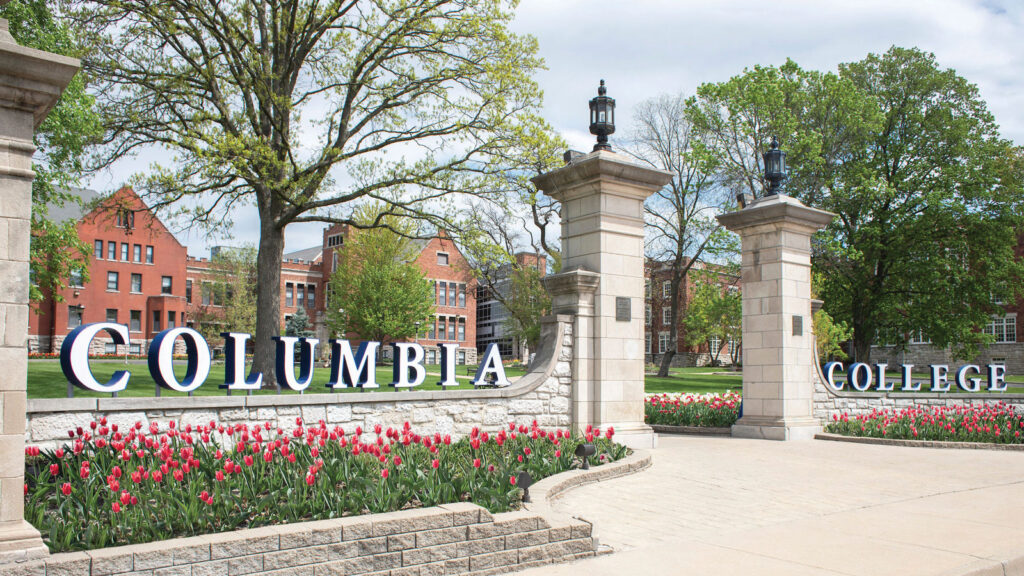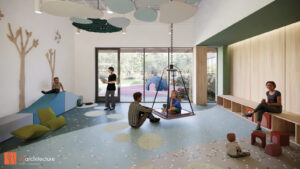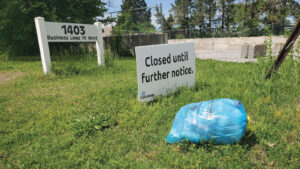Nearly 50 years of offering night school bolsters local workforce.
Did you know that Columbia College’s Evening Campus has been around for almost 50 years? The college, founded in 1851 as Christian Female College (CFC), has a long tradition of adapting to changing times, rising to meet the community’s needs, and remaining innovative to stay ahead of its competitors.
The COVID-19 pandemic disrupted education everywhere, but the evening campus hummed along nicely as it stepped into its full technological potential. This summer, the college announced it was adding 20 new academic programs in high-demand areas chosen to address the growing national skilled worker gap, starting with the August 2023 term.
“I think COVID-19 has done a lot of damage to schools across the country,” says Andrew Reeves, evening campus director since 2018. “I’m proud that we’re still a staple in the community and still providing the services we provide.”
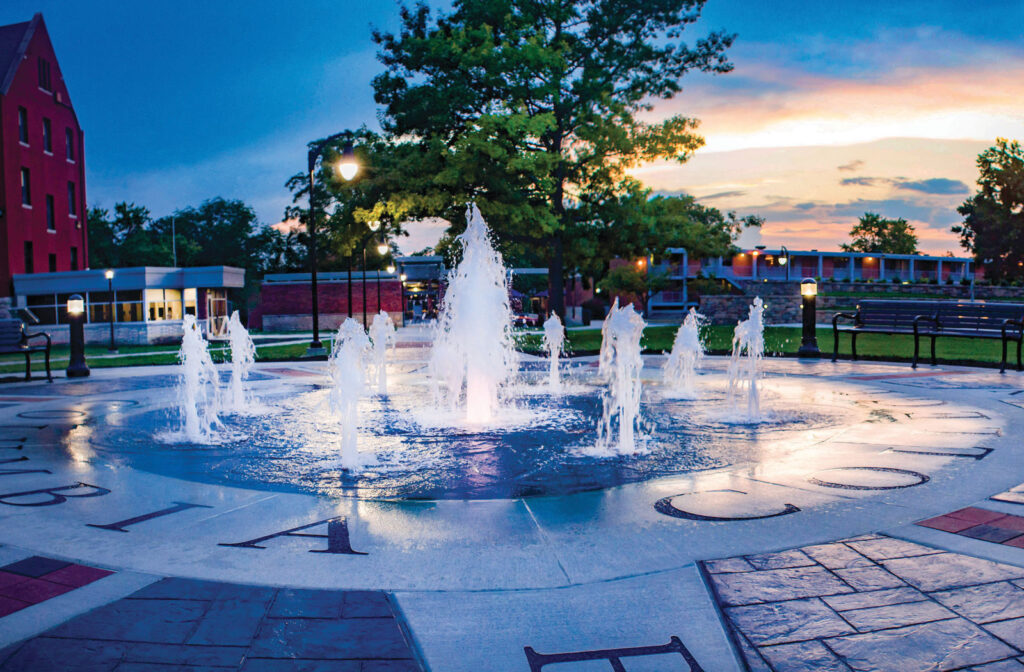
Keeping Pace With a Changing World
CFC barely had time to get off the ground when the Civil War broke out. Despite the risk, it was the only college in town that did not miss a day of classes during the war, thanks to faculty that stayed on knowing they may not be paid. A few decades later, CFC President Luella St. Clair became one of the first female college presidents in the country.
The two-year, all-female college transformed into the four-year, co-ed institution of Columbia College in 1970, a cunning change that set the stage for the future. In 1973, CC was among the first colleges to establish a presence on military bases to serve active-duty military, veterans, and their families. Today, CC has more than 40 satellite locations in 16 states and Cuba.
In the 1970s, adult higher education took off in America; by the end of the decade, adult part-time students started to outnumber traditional 18-year-old students fresh out of high school in “night schools” across the country.
“More than three-fourths of the nation’s 2,900 colleges and universities offered adult education programs in 1978, more than twice the number offering them a decade before …,” writes Bart Barnes in a 1979 Washington Post article entitled, “Adults Flocking Back to College Classrooms.” Columbia College opened its evening campus in 1975, right in the thick of the night school trend. And having gone co-ed five years previously meant many more students could access classes.
“So we used to be the only game in town for evening classes,” Reeves says. “I think other schools have started to become more active in the evening time. But we’ve been here for a long time and currently we serve both undergraduate and graduate students.”
Adult higher education continued to boom through the 1980s. The internet changed the world in the 90s, and while some schools and institutions floundered to adapt, Columbia College jumped right in, recognizing the opportunity. It opened its online campus in 2000, one of the first in the country — years ahead of other schools. In the years to come, the online campus rolled out hybrid courses, taken partially in-seat and partially online, adapting to the ever-shifting online education environment.
While the adult higher education industry constantly is changing, the type of student attending night school hasn’t: working parents who put their education on hold to raise a family; the employee who needs a degree to qualify for a promotion; and folks who want to change careers.
“A lot of these students are working during the day. And then they have to squeeze in completing classes when the kids go to sleep or when they have free time,” explains CC Admissions Recruiter Lisa Hussey, a 2008 CC grad. “They took some college, then dropped out because they started a family. And now the kids are older and they’re ready to focus on themselves. I hear that a lot.”
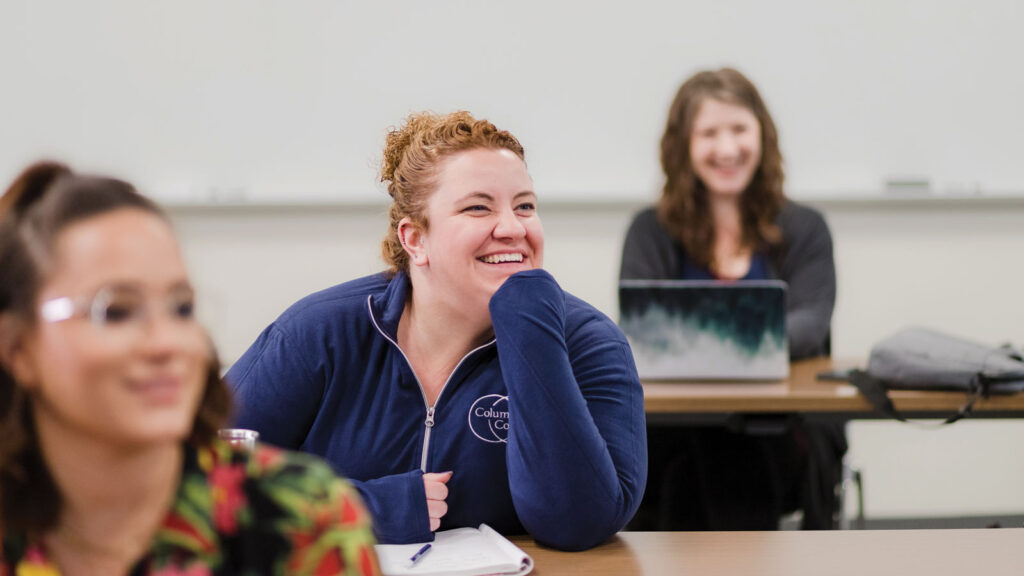
Hussey recruits evening campus students by recruiting their employers. Employees of companies that partner with CC receive a 15 percent tuition discount, and some companies even offer tuition reimbursement to their employees. CC has tuition-discount partnerships with Veterans United, MFA, city of Columbia, Shelter Insurance, Lenoir Woods – Lutheran Senior Services, and more. And the discounts don’t stop with the employee.
“The employee gets that, their spouse or domestic partner, and also their child dependents, 25 years of age and younger, would get that 15 percent discount,” Hussey explains, adding that the perk helps companies to retain their employees.
She says nursing and biology are big draws for evening campus undergrad adult students, as well as the MBA program.
A Silver Lining
“We shifted everything to make it easier for adult students to take classes,” Reeves says about evening campus during the COVID-19 pandemic. “And it’s been remarkably successful.”
CC offers open enrollment, and with classes offered in six eight-week sessions, students can jump in at about any time — as well as take a pause when needed, which is especially helpful for students who get deployed unexpectedly. And while some schools may charge fees for registration, printing, labs, and more, CC prides itself on its transparent tuition schedule, which has no fees and includes the cost of textbooks.
Currently, about 1,000 students are enrolled in the evening campus. The average class size is 15 students.
When COVID-19 closed schools everywhere, CC already had 20 years of experience in offering online education and was well-positioned to adapt. The college began offering what Reeves calls virtual classes, in which students join a live stream of the in-seat course. And they aren’t just passively watching; streaming students can participate and interact with the instructor and other students.
“A pandemic is never something good to talk about,” Reeves says. “But with our infrastructure, we were very prepared to make that switch over [to virtual classes]. And we found out our students like to be connected with that instructor and other students. And it’s worked tremendously well. I don’t see the virtual classes really ever going away, because our students really have adapted and really like taking classes that way.”
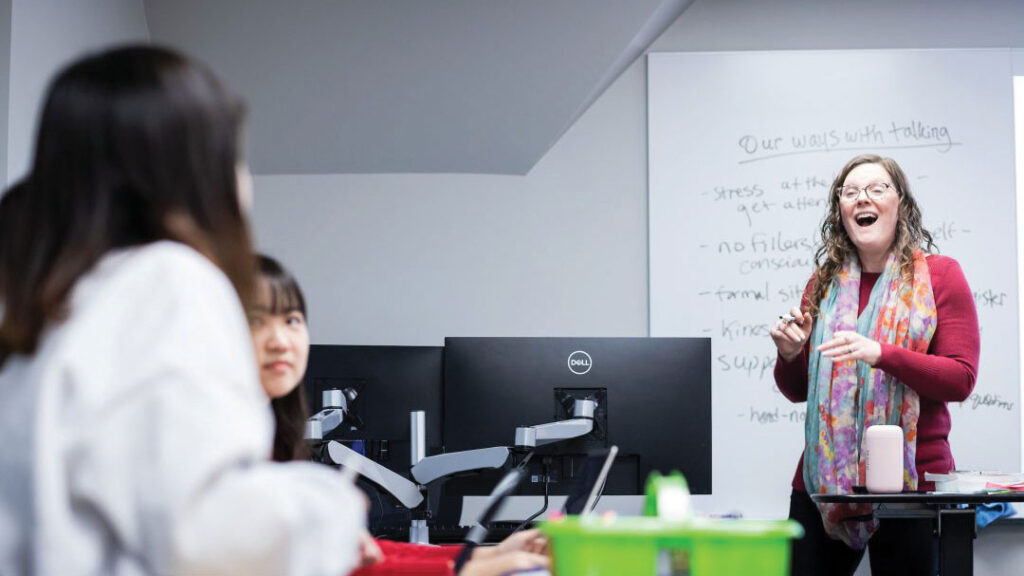
Looking Ahead
With eyes always on the horizon, Columbia College is expanding its academic programs by more than 20 starting this August. The programs include two master’s degrees, five bachelor’s degrees, one associate degree, and 12 certificates. Additionally, four existing in-seat bachelor’s programs will be added to online campus, and three new emphases will be added to the MBA program.
The two new master’s degrees offered are in finance and business analytics. The new bachelor’s programs include the in-demand areas of supply chain management and logistics, global studies, Spanish language and cultures, and statistics. The certificates range from human resources analytics and sports analytics to logistics and transportation, communication, and organizational leadership.
In a July 12, 2023, press release about the recent programs, Piyusha Singh, then the provost and senior vice president for academic affairs, said the college sought and received important feedback from various CC-connected groups and individuals throughout the process.
“We believe these offerings reflect what employers are looking for when hiring the next generation of leaders,” Singh said.
“There are a lot of real-world, hands-on things that we’re developing, that have been requested and shown a need for in our area,” Reeves adds. “We’re looking forward to filling that gap.”
